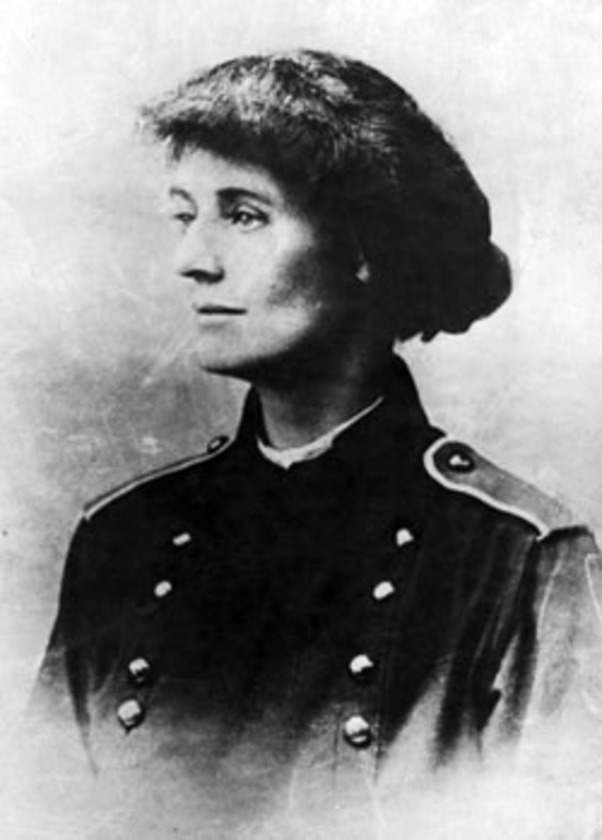The Women of 1916: Courage That Didn’t Wait

In this country, we’ve no shortage of pride.
But the point of remembering isn’t pride—it’s perspective.
109 years ago, a small group of people did something enormous.
They rose.
They risked everything for a vision that wasn’t yet real.
And while most of the focus falls on the names we already know, there’s another side of the story that rarely gets told loud enough.
It’s the story of the women.
Not just supporting in the background—but fighting, leading, nursing, planning, carrying, commanding.
And in the case of many—refusing to leave, even when the buildings were burning down around them.
This piece isn’t about rewriting history.
It’s about acknowledging the parts that were always there.
They were essential.
Long before Easter Monday, women had been building the scaffolding of the revolution.
Through Cumann na mBan, through the Citizen Army, through underground networks, safehouses, printing presses, soup kitchens, drills, dispatches, and debate. Some were suffragists. Others were trade unionists. Most were both.
They were mothers, teachers, doctors, typists, rebels.
But above all—they were present. Fully. Willingly. Without apology.
They didn't wait for permission.
They moved when they knew it mattered.
And when the Rising came, they didn’t flinch.
In the rooms where it happened
Women were in every major garrison bar two.
They were in the GPO, in City Hall, at the College of Surgeons.
They were carrying rifles, nursing the wounded, cooking under shellfire, running messages through barricaded streets, and in many cases—standing in command.
Winnie Carney walked into the GPO with a revolver in one hand and a typewriter in the other.
Countess Markievicz was on the frontline at Stephen’s Green, rifle in hand.
Dr Kathleen Lynn ran medical operations under fire while hiding arms in her car.
Margaret Skinnider, a Scottish maths teacher turned sniper, led men into firefights.
Elizabeth O’Farrell was the woman who carried the surrender—alone—under a white flag.
These weren’t symbolic roles.
These were defining actions.
They paid the same price.
Many of these women were imprisoned, some deported, and almost all were written out of the picture after the fact.
In that iconic photo of Pearse surrendering, Elizabeth O’Farrell’s skirt is barely visible.
A literal footnote.
But without her—there is no surrender. There is no ceasefire.
She negotiated the end of the Rising while carrying the weight of its consequences.
The others didn’t disappear.
They simply got to work again.
Organising aid. Rebuilding the networks. Pushing forward the next phase of the movement.
Some entered politics. Others built hospitals. Some, like Markievicz, took their seat in the new republic—and shaped it from the inside.
Their sacrifices weren’t only in war.
They were in what came after.
This isn’t about blame. It’s about legacy.
We don’t share these stories to reopen old wounds.
That’s not the point.
The point is: these women believed in freedom.
They believed in fairness. In equality. In dignity.
And they acted on it.
Not with bitterness.
But with belief.
Today, as the 1916 Rising ceremony takes place at Dublin's GPO and as we look ahead—it’s their sense of purpose we admire.
We talk about freedom. They lived it.
There’s something deeply Irish about remembering without rage.
About carrying history not as a weapon, but as a weight you’ve chosen to bear.
These women—we honour them today—stood in the fire and kept going.
They were doctors and fighters. Leaders and listeners. Quiet anchors and loud challengers.
And while their names weren’t always carved into the stones of power, they shaped the ground under all of it.
So today, we honour them.
Not to tick a box.
Not to rewrite a headline.
But because without them, the story was incomplete and we might not even exist.
Let this be said—clearly and without hesitation:
The women of 1916 didn’t follow the revolution.
They were part of the revolution.
Today, today we honour them.
Until Next Time,
Shane


